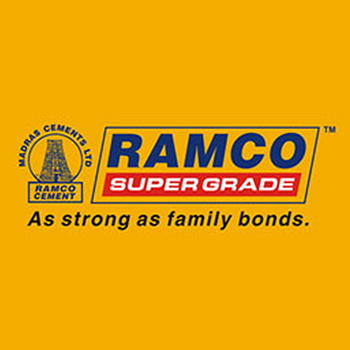Building a home or starting a construction project can feel overwhelming, especially when faced with countless material options. The choices you make now will determine whether your structure stands strong for decades or requires costly repairs within a few years.
Selecting the right building materials goes far beyond picking what looks good or costs less upfront. Your material decisions directly impact structural integrity, long-term maintenance costs, energy efficiency, and overall safety. A poorly chosen foundation material might save money initially but could lead to expensive foundation repairs later. Similarly, opting for low-quality roofing materials might result in water damage that costs thousands to fix.
Smart material selection also affects your project timeline and budget predictability. When you know how to choose the right building materials for your house, you avoid delays caused by material failures, supply shortages, or compatibility issues. This guide will walk you through the essential factors to consider, helping you make informed decisions that balance quality, cost, and performance for your specific project needs.
Key Factors to Consider When Choosing Building Materials
Strength and Durability Requirements
The structural demands of your project should guide your primary material choices. For load-bearing walls and foundations, prioritize materials like high-grade cement, reinforced steel, and quality bricks that can handle significant weight and stress over time.
Consider the lifespan you expect from your structure. Residential buildings typically need materials that perform well for 30-50 years, while commercial structures might require even longer-lasting options. Research the tensile strength, compression resistance, and weather resistance ratings of materials before making final decisions.
Budget and Cost Considerations
Effective budgeting means looking beyond initial purchase prices. Calculate the total cost of ownership, including installation, maintenance, and potential replacement expenses. Sometimes paying more upfront for premium materials saves money over the building's lifetime.
Create a detailed budget breakdown that allocates funds appropriately across different material categories. Generally, structural materials like cement and steel should receive priority funding, while decorative elements can be adjusted based on remaining budget.
Material Availability and Supply Chain
Local availability affects both cost and project timelines. Materials sourced locally typically cost less due to reduced transportation expenses and are less likely to face supply delays. Research which materials are readily available in your area and plan accordingly.
When you buy building materials online from established suppliers, you gain access to better inventory tracking and delivery scheduling. This approach helps prevent costly project delays caused by material shortages.
Environmental Impact and Sustainability
Sustainable building practices are becoming increasingly important for both environmental and economic reasons. Eco-friendly materials like fly ash bricks and recycled aggregates offer comparable performance to traditional options while reducing environmental impact.
Green building materials often provide additional benefits such as better insulation properties, improved indoor air quality, and potential tax incentives. Research local building codes and green certification programs that might influence your material choices.
Maintenance and Longevity
Different materials require varying levels of ongoing maintenance. Wood siding might need regular painting and treatment, while vinyl or fiber cement options require minimal upkeep. Factor these ongoing costs and time commitments into your decision-making process.
Consider your long-term plans for the property. If you're building a forever home, investing in low-maintenance, durable materials makes sense. For shorter-term projects, you might prioritize cost savings over long-term durability.
Aesthetic and Design Goals
Your material choices significantly impact the final appearance and style of your project. Modern designs might call for sleek steel and glass combinations, while traditional styles often feature natural stone, brick, or wood elements.
Remember that aesthetic materials should still meet performance requirements. Beautiful materials that fail to protect the structure or require excessive maintenance can become costly problems rather than attractive features.
Essential Building Materials and Their Applications
Cement: The Foundation of Strong Construction
Cement serves as the binding agent in concrete and mortar, making it crucial for structural integrity. Different cement types serve specific purposes – Portland cement for general construction, rapid-setting cement for quick repairs, and specialized formulations for extreme weather conditions.
Quality cement should meet local building standards and provide consistent performance. Look for cement with proper certifications and avoid products that show signs of moisture damage or extended storage.
Bricks and Blocks: Strength Meets Insulation
Clay bricks offer excellent durability and natural insulation properties, while concrete blocks provide superior strength for load-bearing applications. Fly ash bricks present an eco-friendly alternative that often costs less while delivering comparable performance.
Consider the specific requirements of your wall systems when choosing between different brick and block options. External walls might need weather-resistant materials, while internal walls can prioritize cost-effectiveness or sound insulation.
Aggregates and Sand: The Backbone of Concrete
High-quality aggregates and sand form the foundation of strong concrete and mortar. The size, shape, and cleanliness of these materials directly affect the strength and workability of your concrete mix.
Source these materials from reputable suppliers who test for quality and consistency. Poor-quality sand with excessive clay content can weaken concrete, while improperly graded aggregates can create mixing and finishing problems.
Steel: Essential for Structural Reinforcement
Reinforced steel bars (rebar) provide tensile strength to concrete structures, preventing cracking and failure under stress. The grade and placement of steel reinforcement must match engineering specifications for safety and performance.
Quality steel should be free from rust and meet applicable strength standards. Proper storage and handling prevent deterioration that could compromise structural integrity.
Common Material Selection Mistakes to Avoid
Focusing Only on Initial Cost
The cheapest upfront option often becomes the most expensive choice over time. Low-quality materials typically require more frequent repairs, replacements, and maintenance, driving up long-term costs significantly.
Instead of choosing based solely on price, evaluate the total cost of ownership including installation, maintenance, and expected lifespan. This approach helps identify materials that provide the best value over time.
Ignoring Local Climate and Environmental Conditions
Materials that perform well in one climate might fail in another. Coastal areas require materials resistant to salt air corrosion, while areas with freeze-thaw cycles need materials that can handle thermal expansion and contraction.
Research how different materials perform in your specific climate conditions. Local building codes often reflect these requirements, but additional research can help you make better-informed choices.
Choosing Unreliable Suppliers
Poor supplier selection can derail your entire project through delayed deliveries, inconsistent quality, or inadequate customer support. Research potential suppliers thoroughly, checking reviews, certifications, and track records.
Working with established suppliers who offer quality guarantees and reliable delivery schedules protects your project timeline and budget. The best supplier for construction materials in Chennai should demonstrate consistent quality, fair pricing, and dependable service.
Why Quality Suppliers Matter for Your Construction Project
Reliable material suppliers form the backbone of successful construction projects. Quality suppliers maintain consistent inventory levels, provide accurate delivery schedules, and stand behind their products with warranties and guarantees.
Professional suppliers also offer valuable expertise, helping you select appropriate materials for specific applications and avoiding costly mistakes. They understand local building codes, climate considerations, and compatibility issues that might not be obvious to individual builders.
When evaluating suppliers, consider factors beyond price including delivery reliability, product quality, customer service, and technical support. The right supplier relationship can save time, money, and stress throughout your construction project.
Making Smart Material Choices for Long-Term Success
Successful material selection requires balancing multiple factors including performance requirements, budget constraints, and long-term goals. Take time to research options thoroughly, consult with experienced professionals, and prioritize quality in critical structural applications.
Remember that building materials represent a long-term investment in your property's value, safety, and performance. Making informed choices now prevents costly problems later and ensures your project delivers the durability and functionality you expect.
Ready to start your construction project with confidence? Shop trusted building materials online and access the quality products, competitive pricing, and reliable service your project deserves. Quality materials from dependable suppliers form the foundation of construction success.











